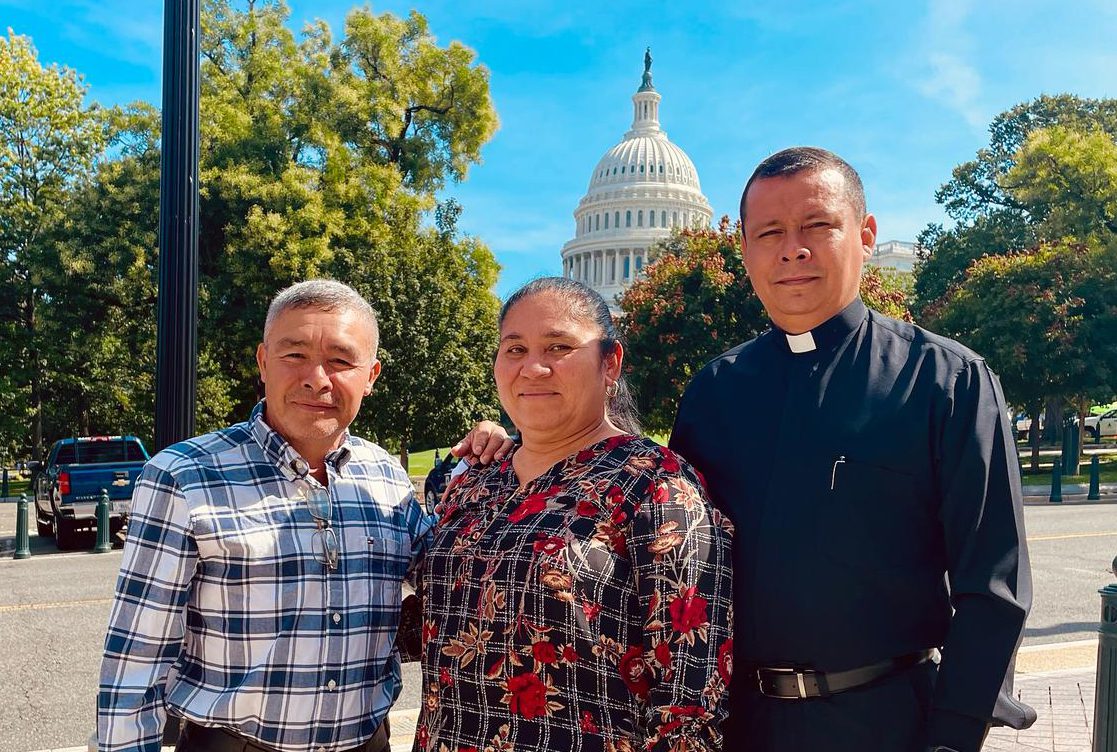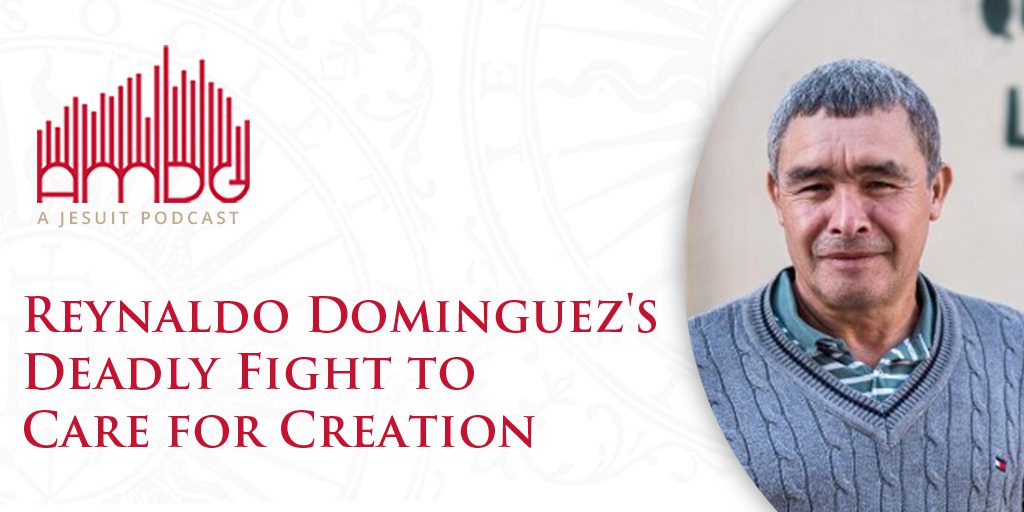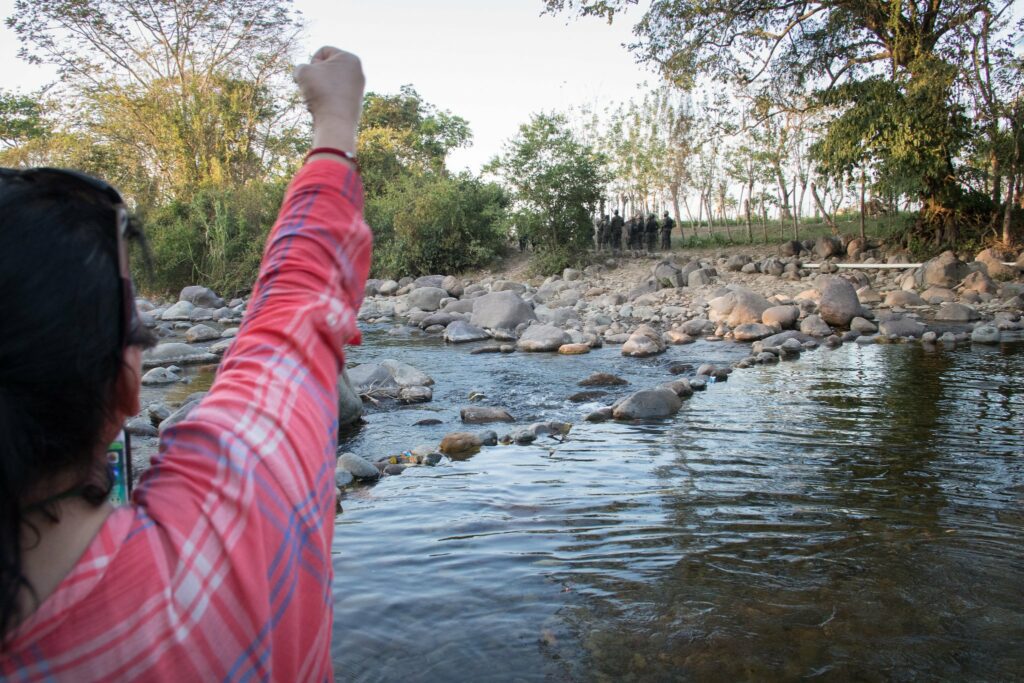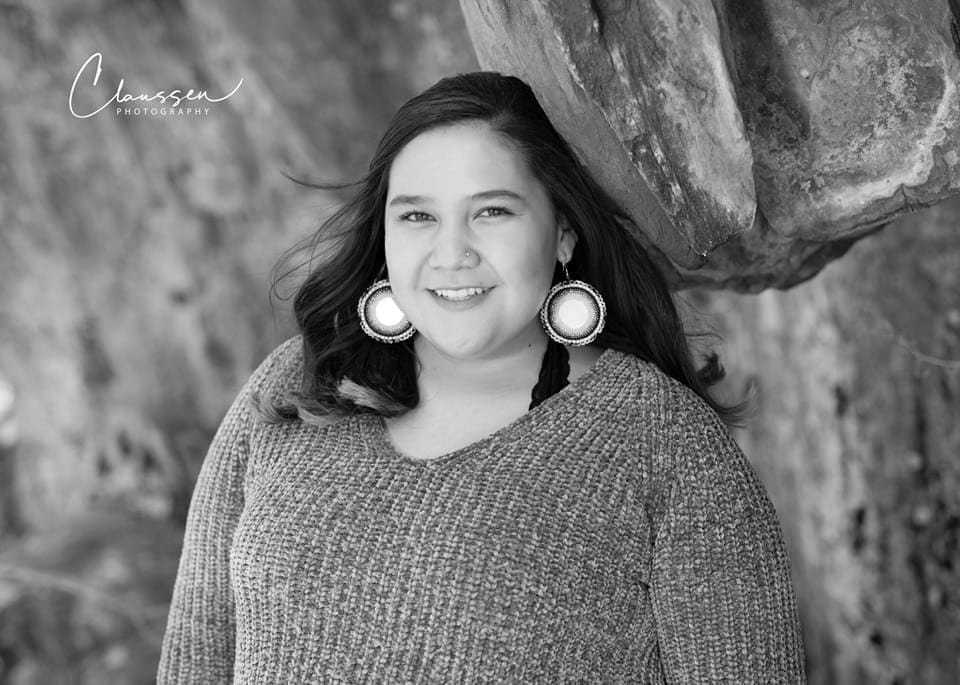
August 5, 2025 — Last week, Fr. Carlos Orellana, SJ, and Reynaldo Dominguez brought their message from the Aguan Valley of Honduras to the capital of the United States — walking the halls of Congress and the streets of Washington — raising awareness about the devastating violence and impunity along their country’s northern coast. Hosted by the Jesuit Conference Office of Justice and Ecology, they traveled to Washington, D.C., on the eve of the one-year anniversary of the assassination of their dear friend, Juan Antonio López.
A tireless leader of the Catholic Church in Honduras who was at the forefront of the struggle for environmental protections in their community, López was assassinated one evening in September 2024 as he was leaving church. Dominguez, in addition to losing his friend Juan, has also lost two of his brothers and another friend to hired assassins, thus forcing him and his family to go into hiding before fleeing Honduras and resettling in the U.S. as refugees.
It all began in 2013, when the Honduran National Congress quietly reduced the boundaries of the protected Carlos Escaleras Botaderos Mountain National Park and subsequently offered two open-pit mining concessions to EMCO Group, a conglomerate owned by some of the most powerful families in Honduras and backed by Nucor, the largest steel manufacturer in United States. However, the rivers that run through this protected park are the only source of water for many of the surrounding communities, and when they became contaminated as a result of the mining, the community resisted. What has followed is years of threats, corruption, assassinations and environmental destruction.
Inspired by their faith — Fr. Orellana is a Jesuit priest and Dominguez a devout Catholic — their love for their neighbors, and their belief in the sacredness of our common home, they’ve risked their very lives for the call of the Gospel. Last week in Washington, they invited U.S. representatives and senators and other NGOs to join them in this struggle.
“In my 60 years of life, no one has ever told me that they can live happily without water. Defending it is not a crime,” Dominguez said.
Fr. Orellana agreed. “We must have justice in the case of Juan López, protection for environmental and human rights defenders, and the cancelation of mining concessions in the national park.” Without those elements, he fears the violence will continue.
September 14 marks the one-year anniversary of López’s death. His memory brings tears to Fr. Orellana and Dominguez’s eyes, but his legacy compels them on.



